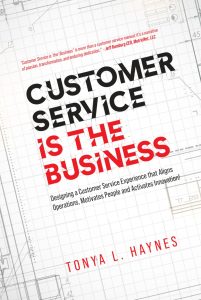Budgeting for Young Adults: Practical Tips to Go From Ramen to Riches
Navigating the financial landscape as a young adult can be daunting, especially when faced with student loans, entry-level salaries, and the temptation to spend impulsively. Read More
Understanding Your Financial Situation The first step in effective budgeting is to assess your current financial situation. Calculate your monthly income after taxes and deductions, including wages, freelance earnings, or any other sources of income. Next, compile a list of your monthly expenses, including rent, utilities, groceries, transportation, entertainment, and debt payments. Understanding your income and expenses will provide clarity and direction for creating a budget that aligns with your financial goals. Creating a Realistic Budget Once you have a clear picture of your income and expenses, it’s time to create a realistic budget. Start by categorizing your expenses into fixed and variable categories. Fixed expenses are essential costs that remain relatively consistent each month, such as rent and utilities. Variable expenses, on the other hand, fluctuate from month to month and may include groceries, dining out, and entertainment. Allocate a portion of your income to each expense category based on priority and necessity. Aim to spend less than you earn and prioritize saving and debt repayment in your budget. Be realistic about your spending habits and avoid setting overly restrictive budgets that are difficult to maintain. Remember, budgeting is about finding a balance between enjoying life and achieving your financial goals. Tracking Your Spending Tracking your spending is a crucial aspect of effective budgeting. Keep a record of your expenses using a budgeting app, spreadsheet, or pen and paper. Review your spending regularly to identify areas where you can cut back or make adjustments. Look for opportunities to reduce discretionary spending on non-essential items and redirect those funds towards savings or debt repayment. Building an Emergency Fund Establishing an emergency fund is essential for financial stability and security. Aim to save at least three to six months’ worth of living expenses in a separate savings account. This fund will provide a financial safety net to cover unexpected expenses such as medical bills, car repairs, or job loss. Start small by setting aside a portion of each paycheck towards your emergency fund and gradually increase your savings over time. Paying Down Debt If you have outstanding debt, such as student loans or credit card balances, prioritize debt repayment in your budget. Allocate extra funds towards debt repayment each month to accelerate your progress and minimize interest charges. Consider using the debt snowball or debt avalanche method to tackle your debts systematically and stay motivated. Investing in Your Future Investing in your future is crucial for long-term financial success. If your employer offers a retirement savings plan, such as a 401(k) or 403(b), take advantage of it and contribute enough to receive any employer matching contributions. Additionally, consider opening an individual retirement account (IRA) or brokerage account to invest in stocks, bonds, or index funds. Start investing early to take advantage of compound interest and grow your wealth over time. Conclusion Budgeting is a fundamental skill that empowers young adults to take control of their finances and achieve their financial goals. By understanding your financial situation, creating a realistic budget, tracking your spending, building an emergency fund, paying down debt, and investing in your future, you can lay the foundation for financial success and build wealth over time. With discipline, determination, and smart financial choices, you can go from surviving on ramen noodles to enjoying a life of financial abundance and security.






